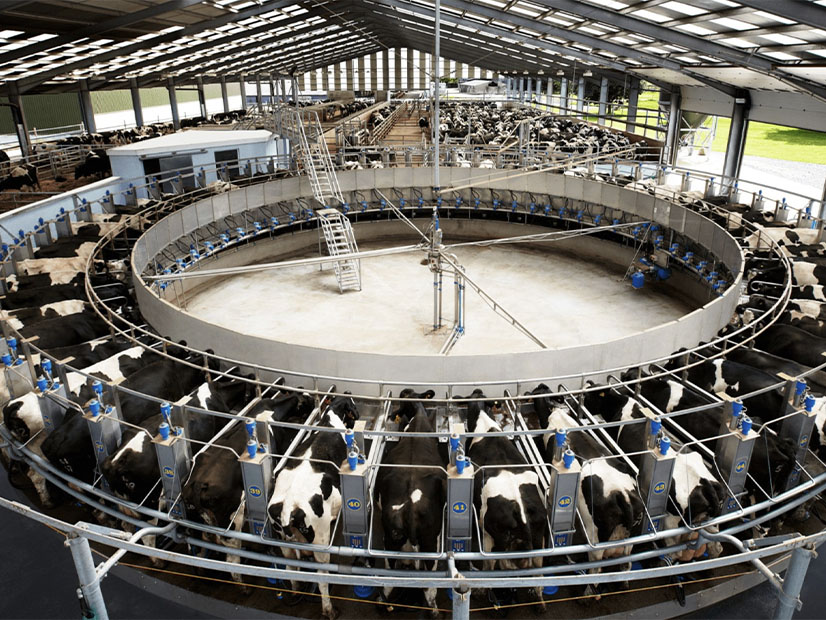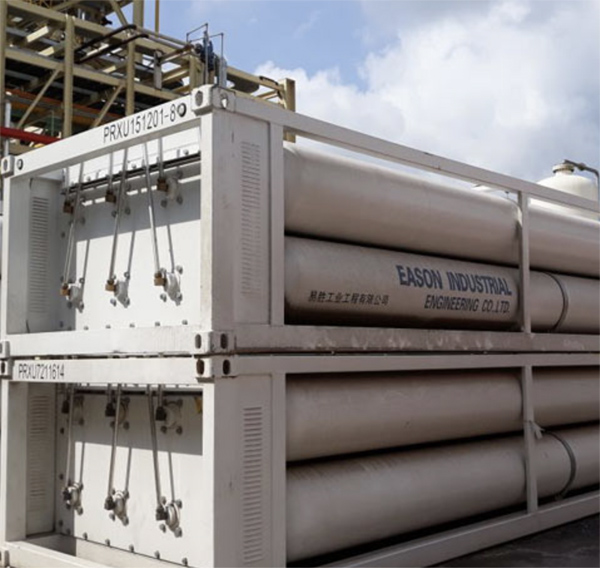
Residents of the Finger Lakes region in New York joined environmentalists and energy experts Wednesday in opposing a proposed facility that would convert manure from nearly 7,000 dairy cows to renewable natural gas and truck it 70 miles to a pipeline (21-G-0576).
Bluebird Renewable Energy (BRE) in November petitioned the Public Service Commission for a certificate of public convenience and necessity and lightened regulatory regime for the project, which would transport anaerobic digester biogas from Aurora Ridge Farm in Cayuga County via a 5.5-mile pipeline to a processing facility on Sunnyside Farm.
A second pipeline, approximately 1,500 feet in length, would transport raw biogas from the Sunnyside’s own digester to the processing facility.
“Bluebird has provided no emissions analysis showing that piping the biogas, processing it, compressing it, trucking it, reheating it, injecting it into the interstate gas pipeline system and then combusting it as RNG would result in lower emissions,” Josh Berman, a senior attorney with Sierra Club, said at a PSC hearing ahead of the Feb. 11 deadline for comment. “Indeed many of these proposed additional steps risk significantly increasing emissions because they are highly energy intensive and introduce the possibility of methane leaks.”
Moreover, even if there were initial reductions associated with the project, BRE proposes to sell the environmental attributes of its RNG into two out-of-state low-carbon fuel programs: the Federal Renewable Fuel Standard Program or the California Low Carbon Fuel Standard, Berman said.
“If Bluebird commodifies its environmental attributes into one of these programs, any climate benefits will be properly accounted for in that program; it cannot be double-counted as an additional climate benefit for New York,” he said.
BRE argued in its proposal that because of its participation in both programs, the annual production from the project, anticipated to be approximately 172,000 MMBtu of RNG, would displace 926,143 gallons of diesel fuel consumed by the transportation sector.
BRE is a subsidiary of DTE Energy. REV LNG of Mendon, N.Y., is a minority member of BRE.
Lack of Details
BRE requested a non-jurisdictional determination from the state’s Department of Environmental Conservation (DEC) confirming that the project will have no impacts on regulated wetlands and, therefore, that no further DEC permitting is required.
“All of these approvals for the proposed pipeline and RNG facilities are expected to be received promptly so as to permit construction to be commenced and completed as soon as feasible to allow the benefits of the project to be expeditiously realized,” BRE said.
The two dairies now mitigate some of the climate impacts of all their methane by using their digesters to produce biogas and generate electricity that’s used on site, said Gale Pisha of Nanuet.
“However, when Bluebird claims in its petition that its biogas product will displace an equivalent amount of fossil fuel, it neglects to calculate the greenhouse gas emissions resulting from all the additional energy spent to collect, scrub, process, compress and transport the RNG to its injection point,” Pisha said.
 Bluebird Renewable Energy projects it would transport one RNG tube trailer per day, like the one shown, for its project in Tompkins County. | Eaton Engineering
Bluebird Renewable Energy projects it would transport one RNG tube trailer per day, like the one shown, for its project in Tompkins County. | Eaton EngineeringBRE said it foresees sending one carbon fiber tube trailer per day to a point where it will be injected into an interstate pipeline, likely the Corning natural gas system near Caton.
The idea of trucking tubes of methane gas bothered Valdi Weiderpass of Endicott.
“This is just unbelievable that we’re still allowing this on New York state roads when the permitting that was used by the federal government to allow this practice in the first place stipulated that these trailers must not leak if the truck has an accident,” Weiderpass said.
He cited several accidents where trucks have rolled over, entered ditches and “then leaked so badly that you could hear it from thousands of feet away, and the first responders that show up are afraid to go near it, rightfully so, because there’s a risk of a fire and or explosion.”
The Bluebird petition appears to be fairly incomplete, energy consultant Bob Wyman said.
“I’ve been involved in many cases in PSC proceedings, but I don’t think I’ve ever before seen one so poorly documented with such an incomplete record,” Wyman said.
The state’s Climate Leadership and Community Protection Act requires that, in making its ruling, the PSC must determine that a project is consistent with the state’s GHG emission-reduction goals. But BRE’s petition does not appear to provide sufficient information to enable the PSC to make such a determination, Wyman said.
“Simply capturing and utilizing some methane does not necessarily result in a decrease in net emissions if one is capturing methane produced from something like an anaerobic digester that dramatically increases the quantity of methane which is produced,” Wyman said.
He also said that injecting RNG into the pipeline system will result in a significant increase in emissions over those that would be produced if the gas were immediately converted to electricity on site. Even if the on-site emissions of the current system are ignored, there would definitely be increased emissions from the transmission, distribution and on-site utilization of the gas, Wyman said.
Aurora Ridge’s and Sunnyside’s digesters are just two of dozens in operation on dairy farms across the state, said Irene Weiser, coordinator of Fossil Free Tompkins, a former council member from the town of Caroline and a retired veterinarian.
“The state must evaluate the implications of its analysis and ruling in light of potentially similar actions from the broader sector in which anaerobic digesters are used. … In light of the paucity of information on the record at this point, I urge the commission to consider a second public statement hearing when the record is complete so that the public is better able to provide meaningful comments,” Weiser said.


